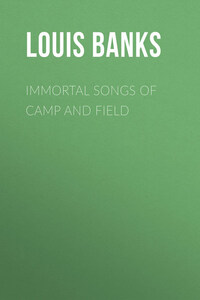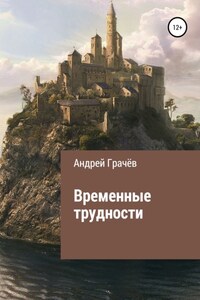When Freedom, from her mountain height,
Unfurled her standard to the air,
She tore the azure robe of night,
And set the stars of glory there!
She mingled with its gorgeous dyes
The milky baldric of the skies,
And striped its pure celestial white
With streakings of the morning light;
Then, from his mansion in the sun,
She called her eagle bearer down,
And gave into his mighty hand
The symbol of her chosen land!
Majestic monarch of the cloud!
Who rear’st aloft thy regal form,
To hear the tempest trumpings loud,
And see the lightning-lances driven,
When stride the warriors of the storm
And rolls the thunder-drum of heaven!
Child of the sun! To thee ’tis given
To guard the banner of the free,
To hover in the sulphur smoke,
To ward away the battle stroke,
And bid its blendings shine afar
Like rainbows on the cloud of war,
The harbingers of Victory.
Flag of the brave! Thy folds shall fly,
The sign of hope and triumph high!
When speaks the signal trumpet tone
And the long line comes gleaming on
(Ere yet the life-blood warm and wet
Has dimmed the glistening bayonet),
Each soldier eye shall brightly turn
To where thy sky-born glories burn,
And, as his springing steps advance,
Catch war and vengeance from the glance.
And when the cannon mouthing cloud
Heaves in wild wreaths the battle shroud,
And gory sabres rise and fall,
Like shoots of flame on midnight’s pall;
There shall thy meteor-glances glow,
And cowering foes shall shrink beneath
Each gallant arm that strikes below
That lovely messenger of death.
Flag of the seas! On ocean wave
Thy stars shall glitter o’er the brave;
When death, careering on the gale,
Sweeps darkly round the bellied sail,
And frighted waves rush wildly back
Before the broadside’s reeling rack,
Each dying wanderer of the sea
Shall look at once to heaven and thee,
And smile to see thy splendors fly
In triumph o’er his closing eye.
Flag of the free heart’s hope and home,
By angel hands to valor given;
Thy stars have lit the welkin dome
And all thy hues were born in heaven!
As fixed as yonder orb divine,
That saw thy bannered blaze unfurled,
Shall thy proud stars resplendent shine,
The guard and glory of the world.
– Joseph Rodman Drake.
Drake was a poet from his childhood. The anecdotes preserved of his early youth show the fertility of his imagination. His first rhymes were a conundrum which he perpetrated when he was but five years old. He was one day, for some childish offense, punished by imprisonment in a portion of the garret shut off by some wooden bars. His sisters stole up to witness his suffering condition, and found him pacing the room, with something like a sword on his shoulder, watching an incongruous heap on the floor, in the character of Don Quixote at his vigils over the armor in the church. He called a boy of his acquaintance, named Oscar, “Little Fingal;” his ideas from books thus early seeking embodiment in living shapes. In the same spirit the child listened with great delight to the stories of an old neighbor lady about the Revolution. He would identify himself with the scene, and once, when he had given her a very energetic account of a ballad which he had read, upon her remarking that it was a tough story, he quickly replied, with a deep sigh: “Ah! we had it tough enough that day, ma’am.”
These lines were very unsatisfactory to Drake, and he said to Fitz-Green Halleck, “Fitz, can’t you suggest a better stanza?” Whereupon the brilliant author of Marco Bozzaris sat down and wrote in a glowing burst of inspiration the four concluding lines: —
Drake immediately agreed that these were a splendid improvement on the former ending, and incorporated them into his one poem that is certain of immortality. It was first published in the New York








